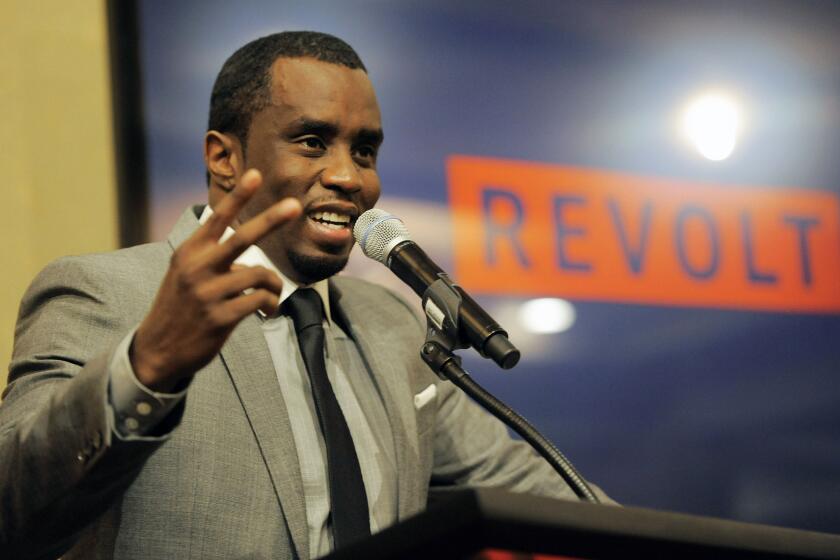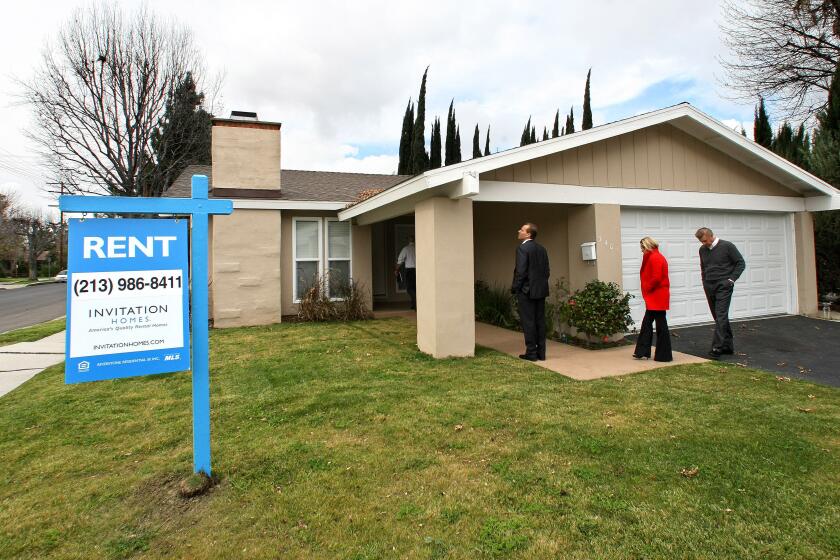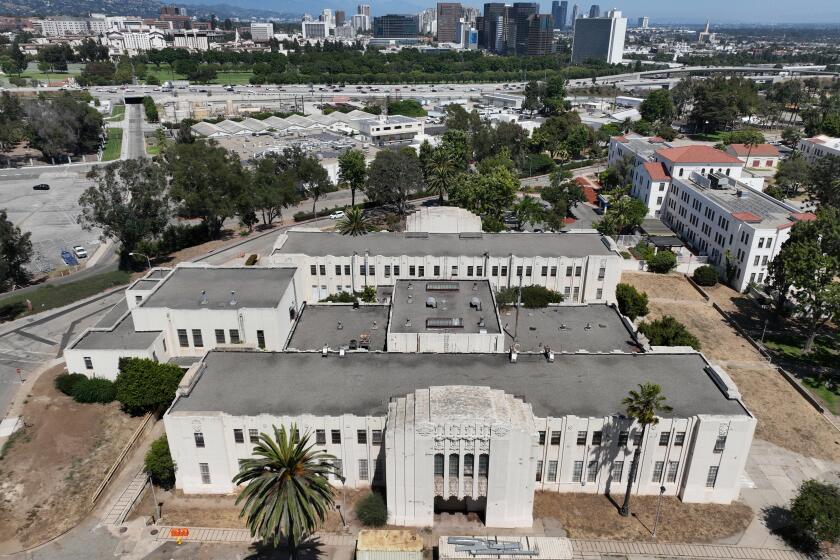Judge rules to remove ‘mistress’ label from Carona indictment
Calling the words irrelevant and prejudicial, a federal judge ruled that the phrase “longtime mistress” should be removed from the description of charges against Debra V. Hoffman, a co-defendant in former Orange County Sheriff Michael S. Carona’s upcoming corruption trial.
The decision by U.S. District Judge Andrew J. Guilford made public Tuesday affects only the language in the indictment and will not prevent prosecutors from presenting evidence about the romantic relationship between the ex-sheriff and Hoffman.
Carona and Hoffman are scheduled to stand trial Oct. 28 in Santa Ana on charges that they conspired to exchange the power of Carona’s office for tens of thousands of dollars in cash and gifts. Carona’s wife, Deborah, is being prosecuted separately on similar charges.
The ruling means that the phrase “longtime mistress” will not be read to the jury.
Carona resigned in January after serving nine years as Orange County’s sheriff, a decision he said he made to give himself time to prepare for trial. In addition to ending his tenure as sheriff, the indictment placed the former lawman in the uncomfortable position of attending court hearings with both his wife and former mistress.
An attorney for Hoffman, 42, had requested that the nature of her relationship with Carona be removed from the indictment because she said it was “gratuitous and inflammatory.”
In other rulings made public Tuesday, Guilford denied a defense request to instruct jurors that federal prosecutors violated state bar ethical guidelines when they allowed a Carona assistant to secretly record conversations with the sheriff last year.
Guilford had previously said that the recordings by former Assistant Sheriff Donald Haidl could be admitted at trial. State bar regulations prohibit attorneys from communicating with adversaries who are represented by counsel, even if the contact is through a third party, such as Haidl.
The judge said the contact was a violation of bar guidelines but not significant enough to exclude the recordings from trial. During one of the meetings, Carona discussed attempts to conceal illicit financial transactions with Haidl.
“Unless there was a pinhole in your ceiling that evening, it never . . . happened,” Carona said in one of the recordings. Prosecutors said “pinhole” was a reference to a hidden camera.
Carona lawyer Jeffrey Rawitz said he was disappointed by the ruling but encouraged that the judge indicated that Carona’s representation by an attorney at the time of the recordings may still be relevant at trial.
“The fact of the matter is he had counsel and they ignored that fact,” Rawitz said.
Sign up for Essential California
The most important California stories and recommendations in your inbox every morning.
You may occasionally receive promotional content from the Los Angeles Times.







